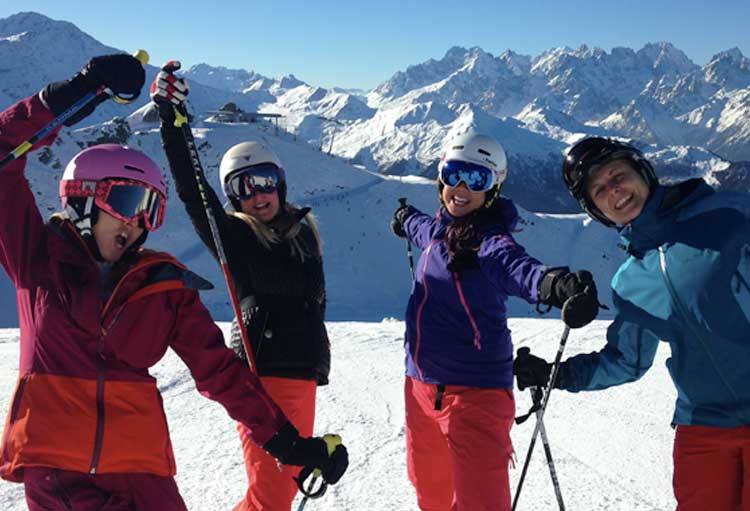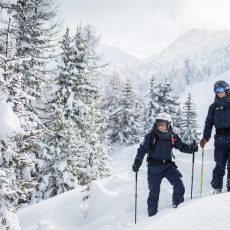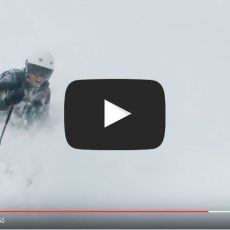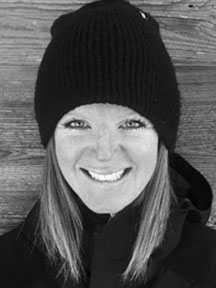
Emma takes a look at how many women are really involved in skiing and what gets them to the top – or stops them…
At the moment how we can improve our lifestyle is a very fashionable topic. Big campaigns are promoting women in sport both recreationally and at national levels.
But skiing is certainly a sport that still has a clear gender divide. Whilst there are physical reasons that some women struggle to reach the highest level, there are also social and psychological barriers that stop women getting there.
Emma Cairns is a good example of a woman who’s made it to the top of her career. She started skiing in Glenshee at 3 years old, later on joining the race club and braving the extreme Scottish weather. Once a chalet girl in Courchevel, today she’s a fully qualified ski instructor who has just started a ski school and is also a BASI Trainer (an examiner in the British ski teaching system).
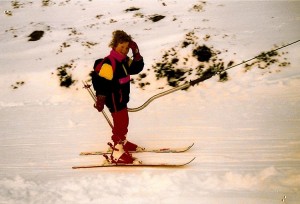
So how did she go from racing her friends in Scottish blizzards to where she is now? And why did so few of her female peers make the same journey?
The statistics are interesting. For example, of nearly 400 ski teachers with the highest British qualification (BASI Level 4) only 60 are women. In the last four years roughly the same percentage of men and women pass their final technical exam, but last season 80% of entrants were male.
Fewer women are attracted to ski teaching exams, but fundamentally fewer women are attracted to skiing.
These statistics are reflected in recreational skiers as well as instructors. For example a 2013 study found only 38% of skiers were women. Around 40% female participation seems a consistent industry average – despite the fact that 52% of the EU is female…
Why? Well, it’s hard to be certain but it seems women simply don’t ski as much as men.
Emma has a theory on just why this divide exists. “We know that proportionately more men ski, and it could partly be because of that more competitive streak that men seem to have. Conversely, women can be put off by that competitive mentality – they simply aren’t motivated that way.”
“I think there is a different psychological incentive for women – we get into ski teaching, for example, for the challenge of teaching skiing and to improve our own technique. Not because we’re wired to compete with our peers in the exams in the same way as men.”
“That difference in psychological approach is quite often very clear in the groups I coach – there isn’t always much technical difference between genders, but the motivational and psychological factors are very different.”
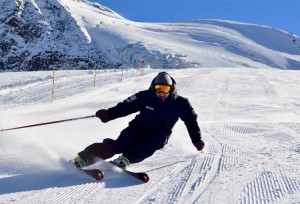
Looking at other women who have progressed through the teaching system Emma thinks the things that set them apart are their confidence, mental strength and sheer determination. But you don’t have to be born that way. Emma firmly believes that female skiers can build that confidence and belief if they’re taught in the correct environment with the right psychological and technical coaching techniques.
“By tailoring how we teach women we can encourage more of them into the sport – that will lead to more women enjoying skiing, achieving more goals and I hope more women believing they can become ski instructors.”
Emma is running Women Camps in Verbier this season, not only to improve female skiers’ technical performance, but also to discover off-piste skiing in a secure and relaxed environment.
“By skiing in women-only groups we can learn together, deal with the positive and negative psychological influences at our own pace, focus on female biomechanics and take our skiing to the next level.”
She sums it all up neatly: “Skiing like a girl should be a compliment…”
